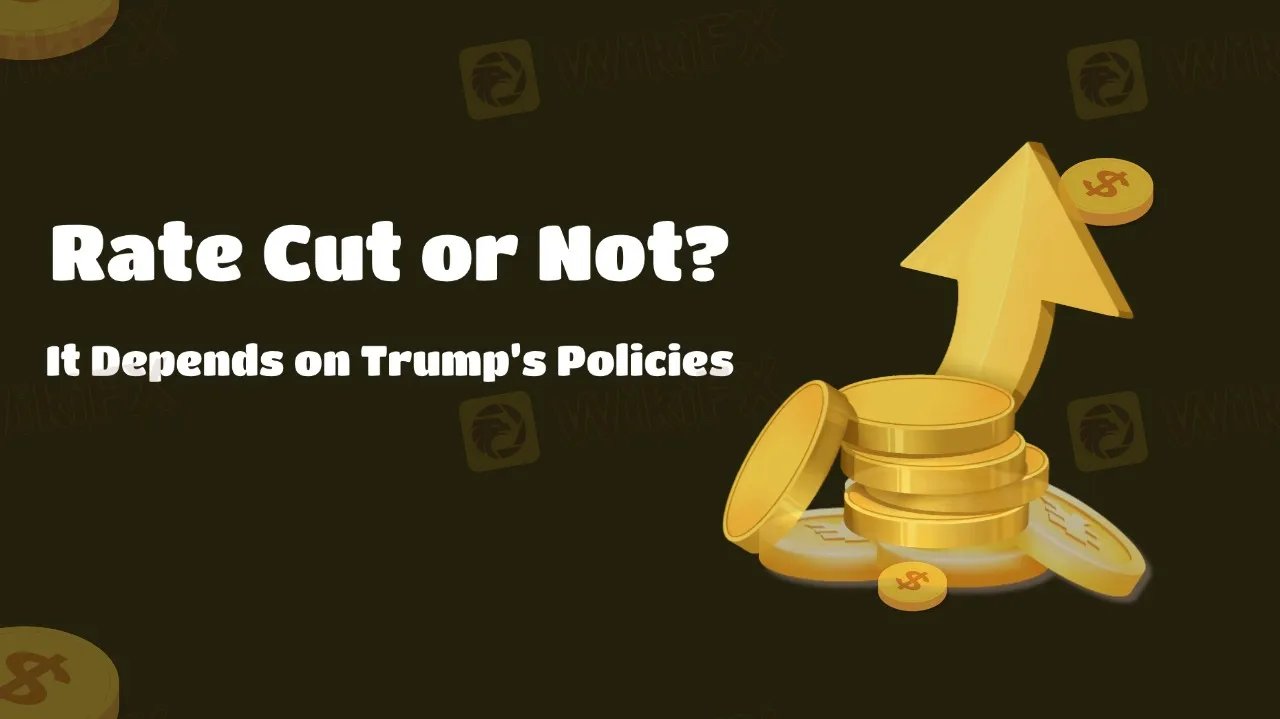简体中文
繁體中文
English
Pусский
日本語
ภาษาไทย
Tiếng Việt
Bahasa Indonesia
Español
हिन्दी
Filippiiniläinen
Français
Deutsch
Português
Türkçe
한국어
العربية
Rate Cut or Not? It Depends on Trump’s Policies
Abstract:The Federal Reserve's latest meeting minutes suggest that the decision on whether to move forward with rate cuts depends on the availability of reliable inflation data and the subsequent policies of President Trump.

According to the minutes of the January meeting released this Wednesday, the Federal Open Market Committee (FOMC) unanimously decided to maintain the current benchmark interest rate. Prior to this, President Trump had implemented a series of tariff policies and, in recent days, threatened to expand these tariffs further.
In a conversation with reporters on Tuesday, Trump revealed that he is considering imposing a 25% tariff on the automotive, pharmaceutical, and semiconductor industries, with plans to accelerate the implementation throughout this year. Although specific details were not disclosed, these measures are likely to usher in a new phase for U.S. trade policy and could further increase prices, particularly as inflation has eased somewhat but still remains above the Fed's 2% target.

The minutes also indicated that during the discussions, FOMC members specifically addressed the potential impacts of the Trump administration's policies, particularly regarding tariffs and the possible effects of reducing regulations and taxes. The committee noted that current monetary policy is relatively more accommodative compared to before the rate cuts, and the policy environment is no longer as tight. This gives the committee more time to assess the economic situation before taking further action.
The participants generally agreed that the current policy stance provides time to evaluate the outlook for economic activity, the labor market, and inflation. The majority of members believe that while the current stance remains somewhat tight, it is still relatively accommodative. However, they expressed concerns about fiscal policy changes potentially keeping inflation above the Fed's target range for an extended period.
Disclaimer:
The views in this article only represent the author's personal views, and do not constitute investment advice on this platform. This platform does not guarantee the accuracy, completeness and timeliness of the information in the article, and will not be liable for any loss caused by the use of or reliance on the information in the article.
Read more

Will natural disasters have an impact on the forex market?
The forex market is known for its rapid responses to global events, but the influence of natural disasters, such as earthquakes and typhoons, can be less straightforward. While headlines may scream about catastrophic damage and economic disruption, the long-term effects on currency values often depend on a blend of immediate shock and underlying economic fundamentals.

Philippines Deports 29 Indonesians Linked to Online Scam Syndicate in Manila
Online scam groups in the Philippines trick Filipinos into gambling and love scams, from Manila to Bacolod, causing trafficking and pain as police fight back.

Why does your mood hinder you from getting the maximum return from an investment?
Investment decisions are rarely made in a vacuum. Aside from the objective data and market trends, our emotions—and our overall mood—play a crucial role in shaping our financial outcomes. Whether you’re feeling overconfident after a win or anxious after a loss, these emotional states can skew your decision-making process, ultimately affecting your investment returns.

Top Currency Pairs to Watch for Profit This Week - March 31, 2025
Discover the top 5 currency pairs to trade for profit this week, March 31, 2025—USD/JPY, EUR/USD, GBP/USD, AUD/USD, USD/CHF—with simple strategies and best times.
WikiFX Broker
Latest News
How Crypto Trading Transforms FX and CFD Brokerage Industry
UK would not hesitate to retaliate against US tariffs - No 10 sources
FCA Warns Against 10 Unlicensed or Clone Firms
CySEC Warns Against 14 Unlicensed Investment Websites
Top Currency Pairs to Watch for Profit This Week - March 31, 2025
Will natural disasters have an impact on the forex market?
Philippines Deports 29 Indonesians Linked to Online Scam Syndicate in Manila
Navigating the Intersection of Forex Markets, AI Technology, and Fintech
Exposed: Deceptive World of Fake Trading Gurus – Don’t Get Fooled!
AI-Powered Strategies to Improve Profits in Forex Trading
Currency Calculator







